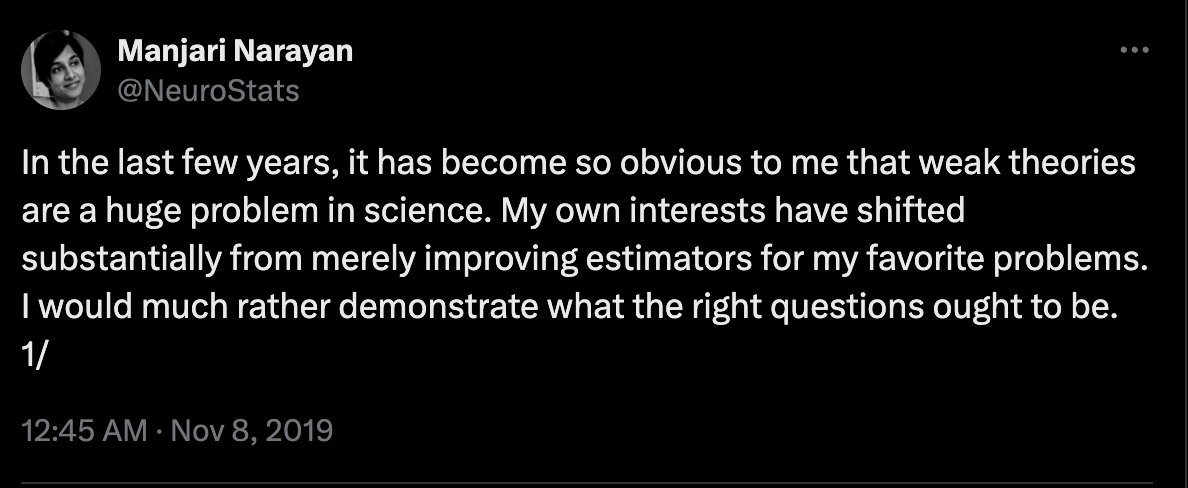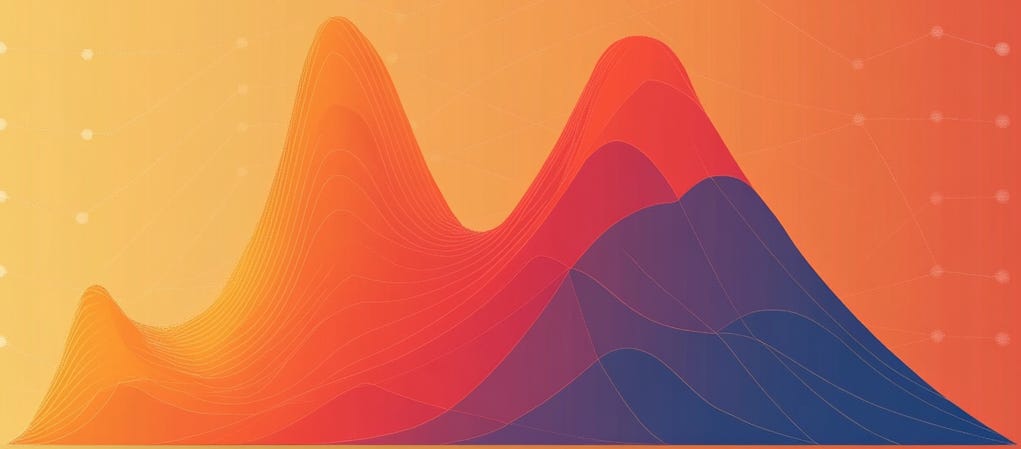Misunderstandings between empirical and theoretical scientists
The Poincaré-Lippman gap is an implicit problem in biomedical research when empirical scientists borrow mathematical tools.
Definition: When scientists think X is a mathematically proven theorem and mathematicians think X is an empirical determined fact.
Many years ago, I began calling this type of situation the Poincaré-Lippman gap. I first used it publicly in a very popular thread about many sciences being too empirical and anti-theory. One consequence of being anti-theory is that too many scientists, especially life-scientists, fail to test and evaluate assumptions needed to draw valid inferences about their studies.
History
In the early days of probability and statistics since the late 19th century, the normal or Gaussian distribution1 as a probability model grew in popularity across many fields.
“Assume that data are generated from a normal distribution.”
At the time Poincaré discussed how mathematical assumptions about normality were a great confusion between empirical vs. theoretically minded researchers.
Everyone is sure of this [that errors are normally distributed], Mr. Lippman told me one day, since the experimentalists believe that it is a mathematical theorem, and the mathematicians that it is an experimentally determined fact.
Henri Poincaré, Calcul des probabilités (2nd ed., 1912), p. 171
Causal discovery edition of the Poincaré-Lippman gap
Scientists think quantifying causal effects and causal discovery is mathematically guaranteed via do-calculus and algorithms, while mathematicians think these tools offer principled scaffolding to aid empirical hypothesis testing in future studies.
If you don’t believe me, Stephen Gillman once exactly articulated what I’ve observed to be a ubiquituous misconception among scientists who read Judea Pearl’s work including Book of Why.
There are likely many such examples out there. David Chapman shared another instance of this type of misunderstanding
Reminded of the situation in the late 1980s when philosophers of mind thought AI people had a coherent understanding of how representation worked and AI people thought philosophers of mind had a coherent understanding of that and suddenly around 1991 both disciplines realized neither did
If you have encountered such examples in your field, please share them in a comment!
A classic stackexchange thread if want to geek out about discussions of central limit theorems






Maybe similar: AI people think they can just train their models on massive biological datasets without having to understand the biology or biochemistry of how the data was generated, and biologists think the AI has magically figured out all the biology and biochemistry and can now answer any question an experimentalist may have.
interesting post … things like this lead me to believe the optimal amount of “epistemic trespassing” is not zero